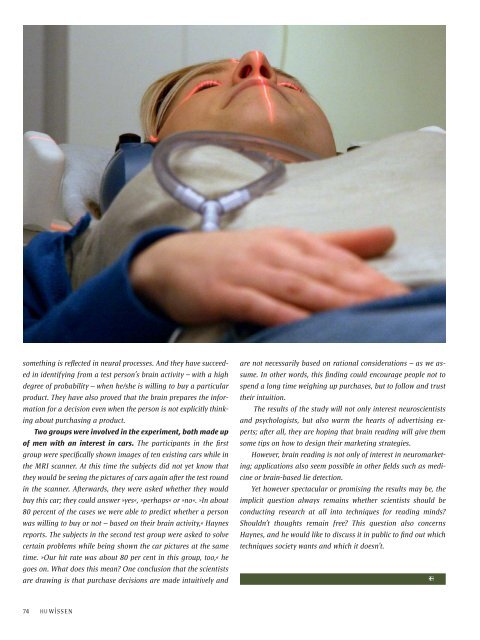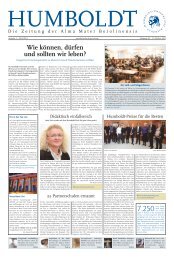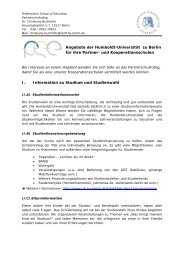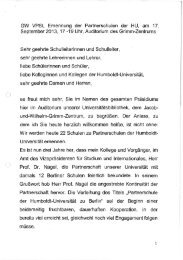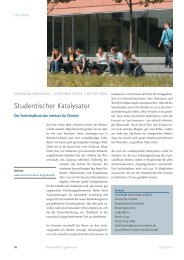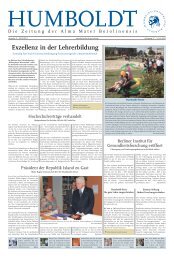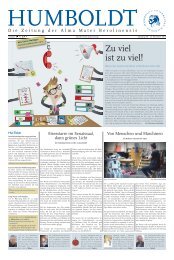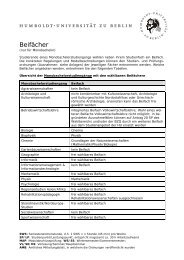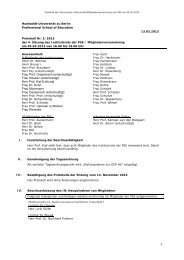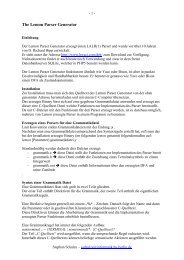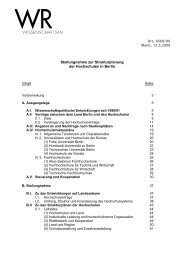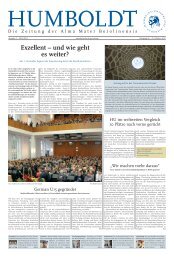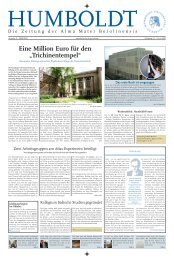hu wissen 1 (pdf) - Humboldt-Universität zu Berlin
hu wissen 1 (pdf) - Humboldt-Universität zu Berlin
hu wissen 1 (pdf) - Humboldt-Universität zu Berlin
Sie wollen auch ein ePaper? Erhöhen Sie die Reichweite Ihrer Titel.
YUMPU macht aus Druck-PDFs automatisch weboptimierte ePaper, die Google liebt.
something is reflected in neural processes. And they have succeeded<br />
in identifying from a test person’s brain activity – with a high<br />
degree of probability – when he/she is willing to buy a particular<br />
product. They have also proved that the brain prepares the information<br />
for a decision even when the person is not explicitly thinking<br />
about purchasing a product.<br />
Two groups were involved in the experiment, both made up<br />
of men with an interest in cars. The participants in the first<br />
group were specifically shown images of ten existing cars while in<br />
the MRI scanner. At this time the subjects did not yet know that<br />
they would be seeing the pictures of cars again aer the test round<br />
in the scanner. Aerwards, they were asked whether they would<br />
buy this car; they could answer »yes«, »perhaps« or »no«. »In about<br />
80 percent of the cases we were able to predict whether a person<br />
was willing to buy or not – based on their brain activity,« Haynes<br />
reports. The subjects in the second test group were asked to solve<br />
certain problems while being shown the car pictures at the same<br />
time. »Our hit rate was about 80 per cent in this group, too,« he<br />
goes on. What does this mean? One conclusion that the scientists<br />
are drawing is that purchase decisions are made intuitively and<br />
are not necessarily based on rational considerations – as we assume.<br />
In other words, this finding could encourage people not to<br />
spend a long time weighing up purchases, but to follow and trust<br />
their intuition.<br />
The results of the study will not only interest neuroscientists<br />
and psychologists, but also warm the hearts of advertising experts;<br />
aer all, they are hoping that brain reading will give them<br />
some tips on how to design their marketing strategies.<br />
However, brain reading is not only of interest in neuromarketing;<br />
applications also seem possible in other fields such as medicine<br />
or brain-based lie detection.<br />
Yet however spectacular or promising the results may be, the<br />
implicit question always remains whether scientists should be<br />
conducting research at all into techniques for reading minds?<br />
Shouldn’t thoughts remain free? This question also concerns<br />
Haynes, and he would like to discuss it in public to find out which<br />
techniques society wants and which it doesn’t.<br />
v<br />
74


